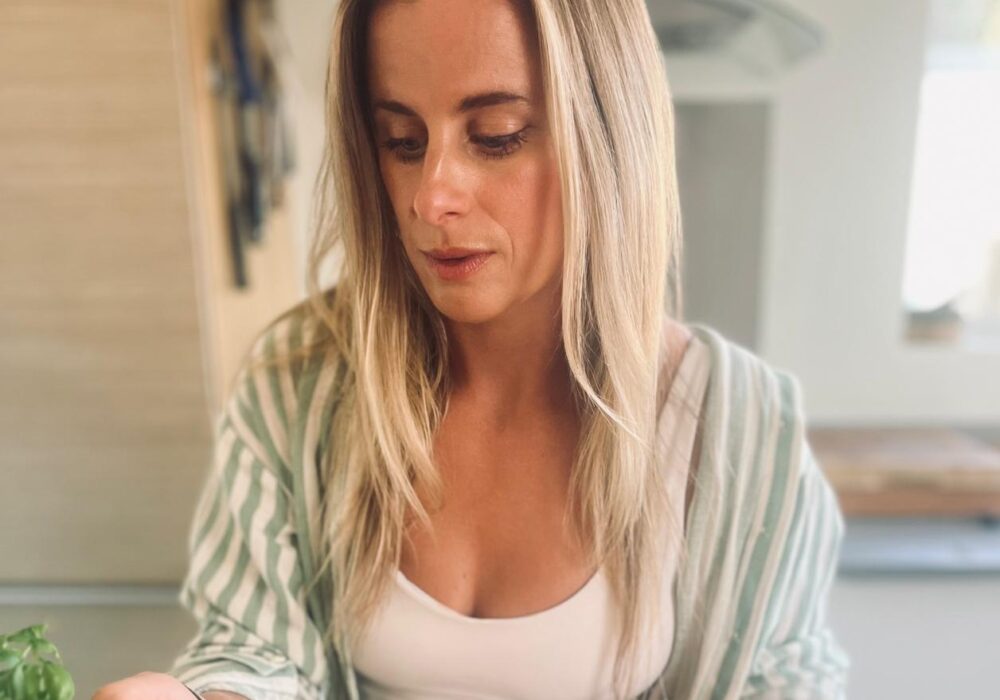Hope
For many, intuitive eating brings a sense of hope. It proposes a way to eat without the burdens of judgment, restriction, fear, or consequence. It’s a refreshing perspective that feels positive and motivating, offering a path to a healthier relationship with food.
Dread
Conversely, some respond with dread, rolling their eyes at the thought of yet another fad diet that promises change but constantly leads to disappointment. The fear of failure looms, and making significant lifestyle changes can feel overwhelming.
So, why does our relationship with food hold such a powerful grip on us?
The Complex Relationship with Food
Food is a giant part of our lives, whether you consider yourself a foodie or not. At its core, food provides the energy and nutrients we need to thrive. But it’s so much more than that.
While this is a generalisation, it’s always worth pursuing one-on-one support if you feel more severe issues are at play. As Mary Poppins wisely said, “Start at the beginning; it’s a very good place to start.”
What is Intuitive Eating?
In simple terms, intuitive eating is about eating what your body needs. It’s about cultivating a positive relationship with food that supports your body and mind.
However, external noise can make tapping into our intuitive side challenging. As the world speeds up, the voices around us grow louder, making it harder to listen to our internal cues and trust our body’s natural signals.
Intuitive Eating is NOT
Intuitive eating is a self-connection journey of learning and discovery—there’s no pass or fail.
Start with the Issues: All Food Should Be Treated the Same.
Every food has its place in our diets. Sure, some foods are more delicious, and others are more nutritionally beneficial, but balance is key.
I’m not here to tell you to only eat a certain way, buy organic food, or avoid thin
gs wrapped in plastic. This blog is about forming positive connections to food.
Normalising all foods is the first step to accepting all foods.
The Demons
Let’s take a moment to reflect on the foods you’ve demonised:
Start by making a list of foods you avoid- allergies excluded. Run through the list and pick one you can change your perspective on. Don’t overwhelm yourself; research shows that making one change at a time is more likely to lead to lasting results.
Have that food around you. It may sound odd, but making it a normal part of your environment is crucial. If you banish it from your life, you’ll never develop a healthy relationship with it.
The thought of stashing cupcakes in your bag or glove box might feel overwhelming, b
ut the more you see something, the more normal it becomes. This doesn’t mean you should surround yourself with trigger foods; take it slow, one at a time.
Consider what that food offers you.
Food is social and emotional, but at its core, it nourishes us—nothing more.
The Hunger Scale
A key element of intuitive eating is identifying when you want to eat. Listening to your body’s natural prompts is essential, even when life gets hectic.
Sometimes, your lunch break may come before you’re physically hungry, and that’s okay! This is where your mind-body knowledge comes in.
Are You Hungry or Looking for a Good Time?
Ask yourself:
Here’s a simple hunger scale to help you recognise where you are:
With intuitive eating, the goal is to avoid both overindulgence and starvation. Listening to the early signs of fullness or emptiness is crucial. That uncomfortable, overstuffed feeling shouldn’t be a regular occurrence. The sense of weakness—brain or braun—often hits us if we’ve skipped meals and powered through a busy day, thinking, “Oh well, I don’t feel hungry. “Then, BAM! Like the darkness in winter, it hits you; you waited too long.
Making Food Choices
It’s time to dine! Hunger is knocking at your door; it’s time to decide wha
t to eat. Your environment will impact your choices, but let’s keep it simple. When planning meals or grabbing snacks, ask yourself:
Breakfast before work example choices
Don’t worry; I won’t give up my peanut butter cookies anytime soon! But, like most thin
gs, there’s a time and a place for everything.
What about your Cravings
When starting this journey, others might say, “I’m finally honouring my cravings.” While listening to your body is important, leaning into every craving can lead to impulsive eating.
Yes, you have permission to honour your cravings, but first, consider where that craving is coming from. Will honouring it serve you well?
Being able to say ‘no’ to food without feeling restricted is part of achieving food freedom.
Be Nice, Be Honest with Yourself
Food can often feel like a punishment or an indulgence, and body confidence plays a significant role in this. Food can be a comforting friend during tough times or the enemy that keeps you from fitting into your favourite jeans.
Being honest with yourself is the first step toward making changes. Acknowledge whe
n you’re using food as punishment or comfort.
Reflecting on Your Feelings
As you start to ask yourself how certain foods make you feel, you’ll find that feeling good often leads to wanting to repeat those choices.
Final Thoughts
Your body needs you, and you need your body. Intuitive eating is a skill like walking a tightrope: You’ll need to allow time before you get off the floor. You need energy to do yoga, work, parent, and run. Too much, and you’ll grind to a halt. Too little, and you’ll barely tip your potential.
So, I leave you with these questions: Who would you be if there were no mirrors in the
world? What would you do? How would you fuel your body?
All our bodies are capable of, frankly, awesome things. Why not focus on what they can do rather than what they look like? Wouldn’t that be rejuvenating?
Food is indispensable. Grab that bagel, raise it high and relish it!
This blog has been written for you by the lovely Abbie Morris. You can dive into the eclectic blend of services that she offers; from soothing massages that embrace every inch of your body, to specialist training
tailored for your athletic pursuits, the meticulous care provided pre-surgery or through the ancient art of acupuncture.
Find out more about Abbie by clicking her link below:

When people hear the term "intuitive eating", their reactions usually fall into one of two categories: Hope or...
Read more
What are the Yoga Sutras and Who is Patanjali? As we start to dip our toes in the vast history of yoga, let's...
Read more
Read a little bit more about the Wellness Warriors Queen - Becky Hickman. As Becky prepares to leave her...
Read more